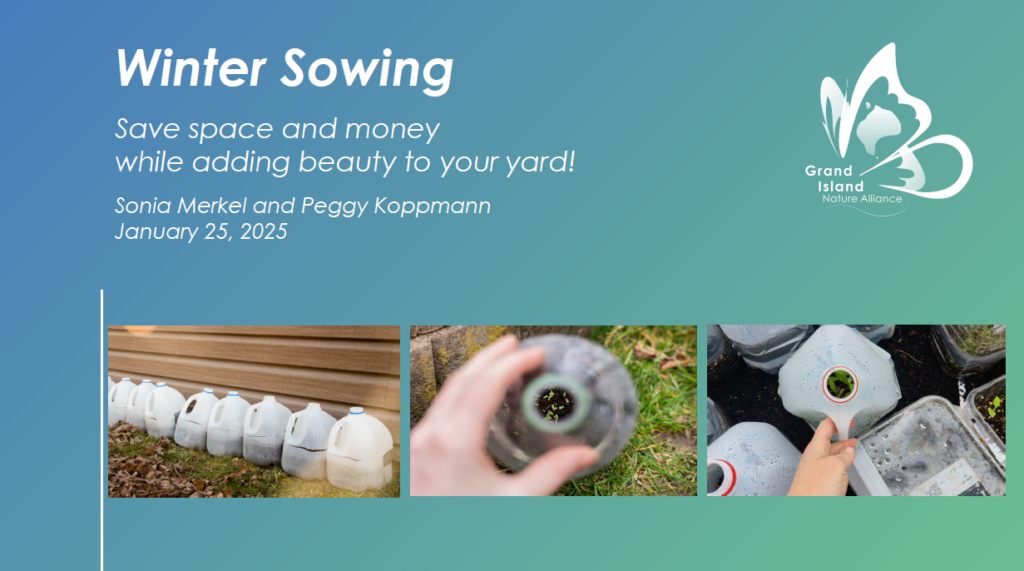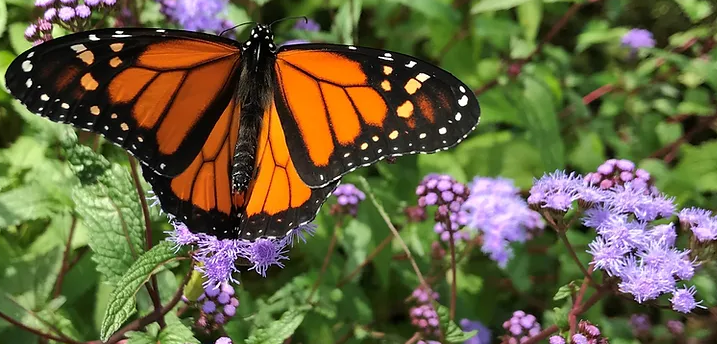Our Materials
Easy to grow WNY Native Plants
Native Plants added to your garden help to increase biodiversity, provide habitat and food sources for insects and animals, and are undoubtedly beautiful! Local nurseries and conservation agencies advocate for reducing monoculture “aesthetic” plantings in our yards and gardens and opt instead for adding native species as often as possible. Click here to view more native plants: Native_Plant_List_2022_with_Lorimer_Additons_ALL_SPECIES
- Common Milkweed: Full sun and well-drained soil. Allow about 18 inches between plants, as the rhizomatous roots will fill the space between plants. An active spreader, Common Milkweed may not be the best choice for decorative borders but will be happy in meadows, and no-mow areas.
- New England Aster: Full Sun and moist but well-drained soil. Fast growers that can bloom in their first year, these plants can become beautiful statement pieces in any garden.
- Goldenrod: Full Sun and well-drained soil. Goldenrod can reach between 3 and 5 feet in height at its mature size. Extremely easy to care for, Goldenrod does best without fertilizer and consistent watering while the plant is young, then just in times of drought.
- Bee Balm: Full to partial sun, moist but well-drained soil. Part of the mint family, Bee Balm spreads via underground rhizomes and is a known hummingbird attractor! All kinds of pollinators flock to the bright lavender or red flowers.
- Black Eye Susan (Rudbeckia): Full sun, moist, well-drained soil. This little reliable garden friend just blooms and blooms! Sprinkle seeds in the fall or plant plugs in the spring. Black Eye Susan is known for its volunteers, which make it a favorite for filling in flower beds and decorating unkempt corners.
- Obedient Plant: Full sun, well-drained soil. A slight misnomer, the Obedient Plant or false dragonhead, is not so obedient, spreading easily. But for those interested in filling in an area, providing low-maintenance food and shelter for wildlife, or just wanting a surplus of unique cut flowers, there’s no better plant!
- Butterfly Weed: Full sun and drier, well-drained soil. Sow seeds directly into the garden in the fall. This plant is a bit slower to grow, taking up to three years to flower in some cases, but once established, this low-maintenance plant will provide volunteers for years to come.
Grand Island’s unique features and importance to wildlife are as tantamount to species survival as those in the Galapagos Islands or Florida Everglades. Our passionate community members are proud to call Grand Island home!

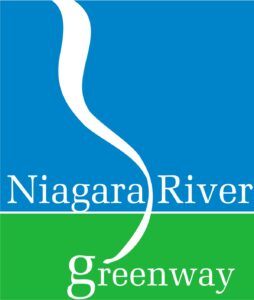
The Niagara River Greenway Staff and Commissioners work to fulfill the Niagara River Greenway Plan through review of proposed projects, stewardship programs, community events, and collaboration with municipalities and organizational partners. Our goal is to create a world-class trail and greenspace network within the Niagara River corridor that communities can be proud of and cherish for generations to come.
Eastern Monarch Butterfly Farm is a self-funding organization dedicated to increasing the Monarch population. By restoring and replacing indigenous natural habitats, releasing healthy butterflies, and conducting educational presentations, we are making a difference. We are located in Western New York, and all of our butterflies are released here in NY; we do not ship live Monarchs outside the state.

Urban Roots Cooperative Garden Market is a consumer cooperative business in Buffalo, NY whose mission is to provide quality products for gardening. We aim to be an active and enriching member of the community.
We will offer affordable, unusual, heirloom, native, organic and local plants, and gardening supplies.
We will foster a working relationship with the greater neighborhood in order to encourage beautification and urban renewal.
We will engage the community through education, employment, outreach, and expertise.
North Tonawanda Botanical Garden Organization, Inc., a 501(c)3 nonprofit organization established in 2018, maintains North Tonawanda’s Botanical Garden as a scenic destination for our community to enjoy along the Erie Canal.
We use sustainable practices and native plants suited to Niagara County and Western New York.
Volunteers of all skill levels are welcome. We enjoy teaching our volunteers about gardening. For info, call (716) 692-0237 or email ntbgo@hotmail.com.
The Erie County Cornell Cooperative Extension has an amazing repository of information related to native insects and plants, as well as information on dealing with invasive species in our area.
Erie County Pollinator Information
Erie County Healthy Lawns Campaign
Erie County Invasive Species
The Pollinator Conservation Association is a Western New York based, not-for-profit organization (501 (c) (3), that supports pollinator conservation through initiatives and action plans that promote community engagement, collaboration, education, and implementation strategies based on science and ecological integrity.
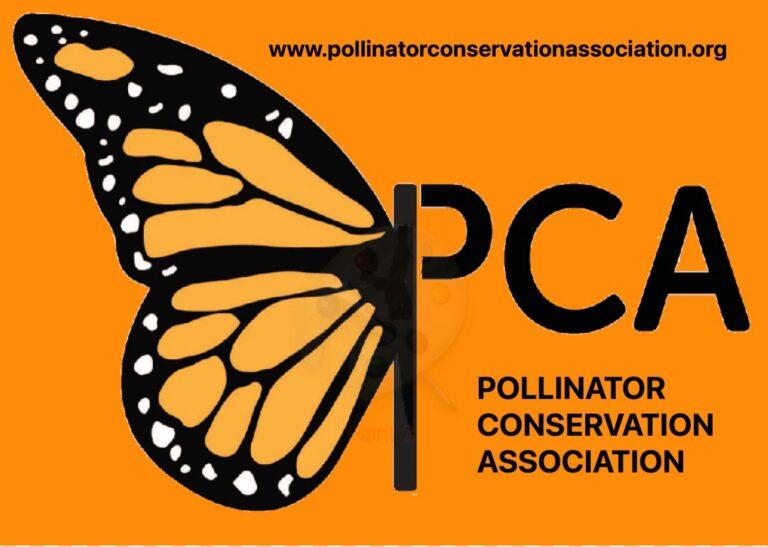
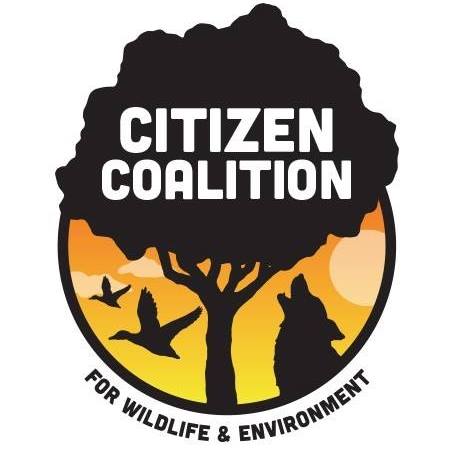
Citizen Coalition for Wildlife & Environment’s mission is to be the voice of wildlife and stewards of the environment, to encourage and enlist citizens in the practice and promotion of compassionate coexistence and the realization of a kind and compassionate world, and to use education and action to protect our ecosystems and the lives of animals.
Our mission is to provide our customers with the highest-quality nursery stock, grown on-site or sourced locally as much as possible. We pride ourselves on our commitment to conservation and restoration, and we partner with like-minded wholesale companies to offer a wide variety of plants to suit any landscaping need. Contact us today, and let us help you bring nature home.
CW Native Plant Farm at Murder Creek
Urban Roots Cooperative Garden Market is a consumer cooperative business in Buffalo, NY whose mission is to provide quality products for gardening. We aim to be an active and enriching member of the community.
We will offer affordable, unusual, heirloom, native, organic and local plants, and gardening supplies.
We will foster a working relationship with the greater neighborhood in order to encourage beautification and urban renewal.
We will engage the community through education, employment, outreach, and expertise.

